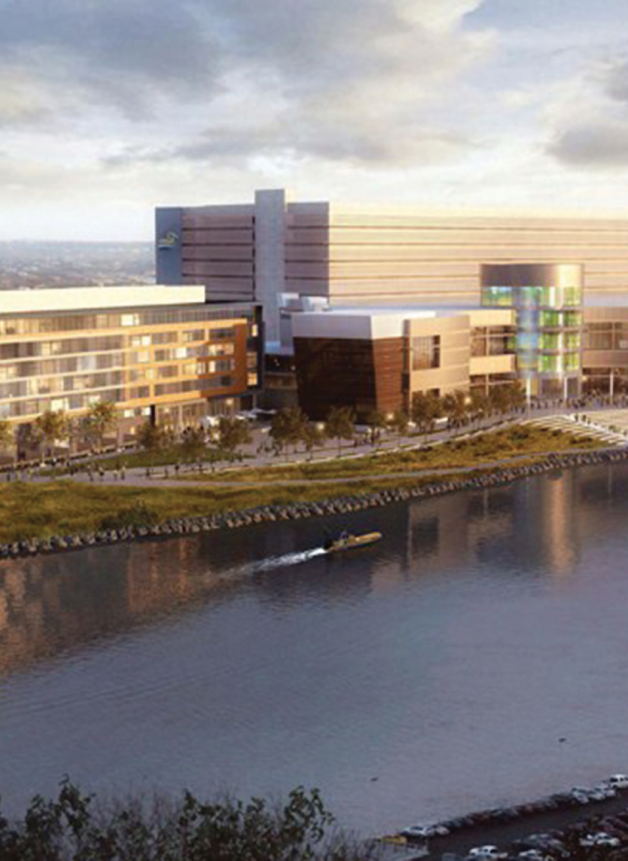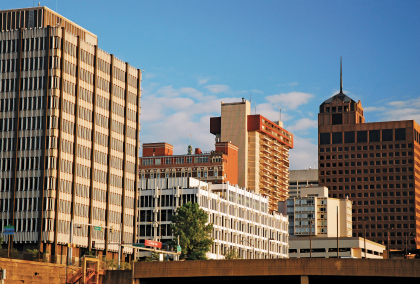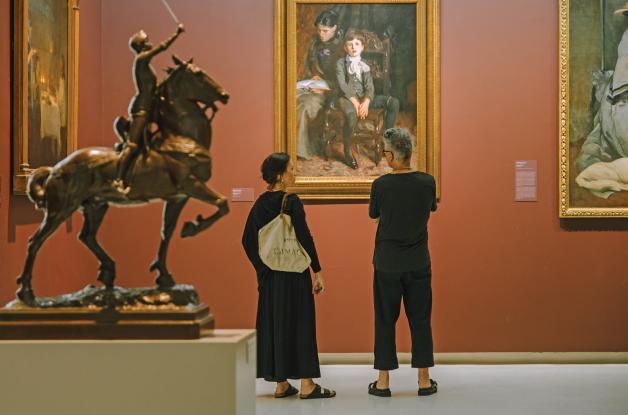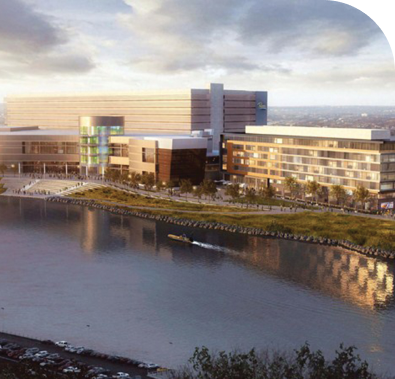
Strategy: Experiences

Accomodations
Diverse, high-quality lodging options enable visitors to extend their time in a destination and expand their ability to enjoy various attractions and events while contributing to the local economy. With over 18,500 hotel rooms and a 60% share of ‘Upscale’ inventory, Pittsburgh is widely considered an upmarket destination. Short-term rentals are also an important and increasingly popular choice in Allegheny County. Hotel development has historically responded to visitor demand by creating group- and business-oriented accommodations downtown, and by developing leisure accommodations downtown and along the western airport corridor. Supply is relatively young and consists mostly of limited- and select-service properties which offer fewer services and amenities. New opportunities have arisen in Oakland as a growing tech, healthcare, and education hub. Near-future hotel development is limited, with only one 225-room hotel planned for completion within the next 4 years.
Despite the past focus on development, Pittsburgh’s downtown hotel supply does not meet convention center needs due to the age of larger properties and the lack of immediately adjacent rooms. Market conditions are not currently suitable for the addition of a large headquarters hotel without public financing.
As the destination continues to draw both business and regional leisure travelers with a range of budgets, Pittsburgh will need to diversify its lodging products and price points to meet the needs of these consumer segments.
CASE STUDIES

Downtown Memphis Tourism Development Zone (TDZ)
Located in a tourism development zone, the Peabody Hotel in downtown Memphis received approval to create a 5% surcharge for guests on all goods and services that is expected to generate more than $25 million for renovations and improvements over thirty years. Renovations will include the construction of new dining areas, a lobby refresh, and the remodeling of all guest rooms. Tourism development zones are state-enabled tax districts/neighborhoods whose sales taxes (both state and local taxes) are set aside in a TDZ fund to be used specifically on major tourism projects.
CASE STUDIES

Downtown Memphis Tourism Development Zone (TDZ)
Located in a tourism development zone, the Peabody Hotel in downtown Memphis received approval to create a 5% surcharge for guests on all goods and services that is expected to generate more than $25 million for renovations and improvements over thirty years. Renovations will include the construction of new dining areas, a lobby refresh, and the remodeling of all guest rooms. Tourism development zones are state-enabled tax districts/neighborhoods whose sales taxes (both state and local taxes) are set aside in a TDZ fund to be used specifically on major tourism projects.

Neighborhoods
Improvements in the quality of existing hotels and the addition of new supply that better serve traveler needs are essential components to improve Pittsburgh as a tourism destination. As such, it is important that Pittsburgh continue to support the growth of rooms in quality hotel developments across the city, particularly in key visitor-supporting neighborhoods such as Downtown, Oakland, East Allegheny/Historic Deutschtown, and the Strip District.
CASE STUDIES

Downtown Memphis Tourism Development Zone (TDZ)
Located in a tourism development zone, the Peabody Hotel in downtown Memphis received approval to create a 5% surcharge for guests on all goods and services that is expected to generate more than $25 million for renovations and improvements over thirty years. Renovations will include the construction of new dining areas, a lobby refresh, and the remodeling of all guest rooms. Tourism development zones are state-enabled tax districts/neighborhoods whose sales taxes (both state and local taxes) are set aside in a TDZ fund to be used specifically on major tourism projects.

African American Heritage
More than one in five residents of Pittsburgh currently identifies as being Black or African-American, according to the latest Census. Despite a decline from 2010 to 2020 in Pittsburgh, the Black population remains strong in Allegheny County. With Black Pittsburghers arriving as early as the 1800s following abolition, their history and culture continue to manifest in the urban fabric of the City – in local music, craft, cuisines, and historic sites and institutions.
CASE STUDIES

Downtown Memphis Tourism Development Zone (TDZ)
Located in a tourism development zone, the Peabody Hotel in downtown Memphis received approval to create a 5% surcharge for guests on all goods and services that is expected to generate more than $25 million for renovations and improvements over thirty years. Renovations will include the construction of new dining areas, a lobby refresh, and the remodeling of all guest rooms. Tourism development zones are state-enabled tax districts/neighborhoods whose sales taxes (both state and local taxes) are set aside in a TDZ fund to be used specifically on major tourism projects.
CASE STUDIES

Downtown Memphis Tourism Development Zone (TDZ)
Located in a tourism development zone, the Peabody Hotel in downtown Memphis received approval to create a 5% surcharge for guests on all goods and services that is expected to generate more than $25 million for renovations and improvements over thirty years. Renovations will include the construction of new dining areas, a lobby refresh, and the remodeling of all guest rooms. Tourism development zones are state-enabled tax districts/neighborhoods whose sales taxes (both state and local taxes) are set aside in a TDZ fund to be used specifically on major tourism projects.
